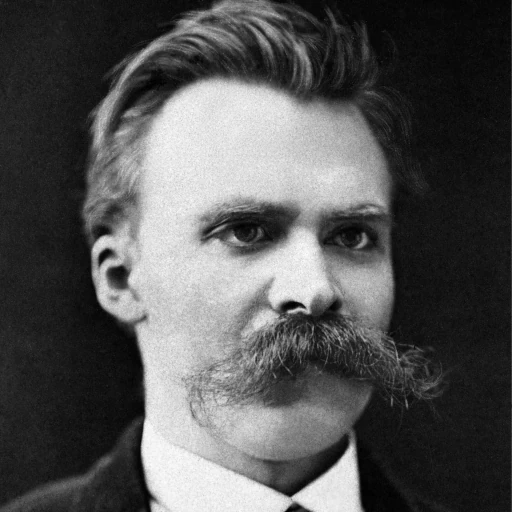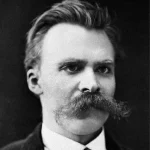“The abdomen is the reason why man does not readily take himself to be a god.”

- October 15, 1844 – August 25, 1900
- Born in Germany
- Philosopher, poet, and classical philologist
- With works such as “Thus Spoke Zarathustra,” “Beyond Good and Evil,” and “The Genealogy of Morals,” he questioned traditional morality, religion, and truth, and had a major impact on modern philosophy.
Quote
“The abdomen is the reason why man does not readily take himself to be a god.”
Explanation
In this quote, Friedrich Nietzsche uses the metaphor of the abdomen—the area associated with physical needs, instincts, and vulnerability—to highlight the limitations and earthly nature of human beings. Nietzsche suggests that the very fact that humans are bound by basic biological functions—such as hunger, digestion, and other bodily needs—prevents them from seeing themselves as gods or divine beings. While humans may have the capacity for thought, creativity, and spiritual or philosophical contemplation, they are ultimately enslaved by their physical bodies and instincts. The abdomen, with its constant demands for food and sustenance, serves as a reminder of the physical limitations that keep humans grounded in the material world rather than elevated to the status of divine or perfect beings. Nietzsche’s statement can be seen as a critique of human pride and the tendency to overestimate our spiritual or intellectual greatness, pointing out that our physicality and our dependence on the body keep us from achieving the idealized status of gods.
Historically, Nietzsche often critiqued the idea of humans aspiring to divine perfection or seeing themselves as above nature. He rejected moral and spiritual ideals that demanded people transcend their physical nature in favor of an abstract, higher existence. For Nietzsche, true greatness came not from escaping the body but from embracing and transforming the human condition, including its earthly and instinctual aspects. The abdomen, in this context, becomes a symbol of the earthly aspects of life that people cannot easily deny or overcome.
In modern contexts, this quote can be seen as a commentary on the mind-body relationship and the way in which human beings are often torn between spiritual or intellectual pursuits and the basic needs of the body. In today’s world, where materialism and physical desires often conflict with higher aspirations or ideals, Nietzsche’s words remind us that the human condition is marked by imperfection and vulnerability—we cannot escape our biological nature, no matter how much we try to transcend it. This perspective encourages us to acknowledge and accept the full range of human experience, embracing both the earthly and spiritual aspects of existence.


